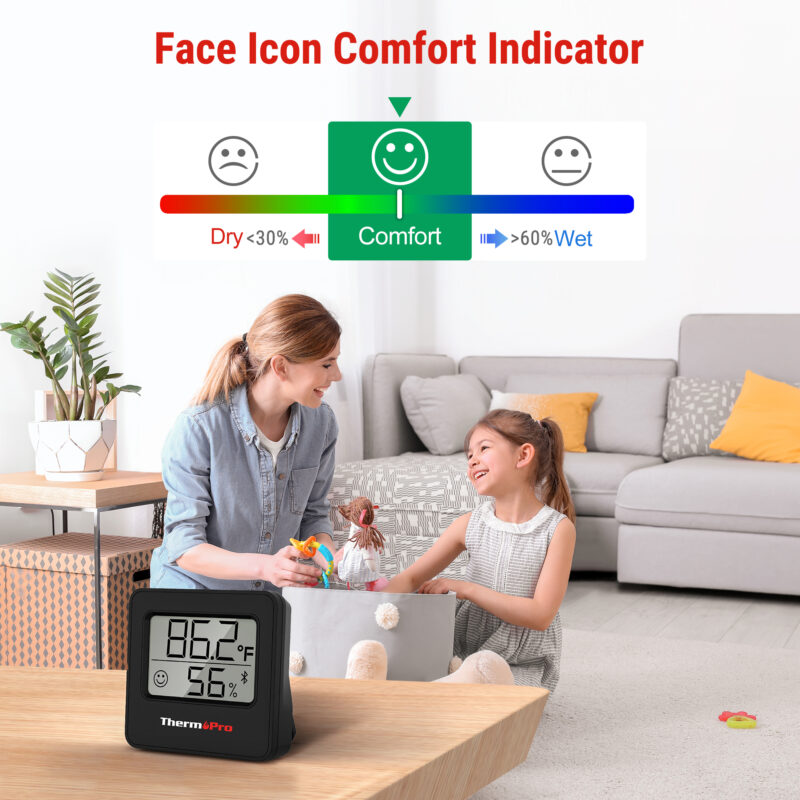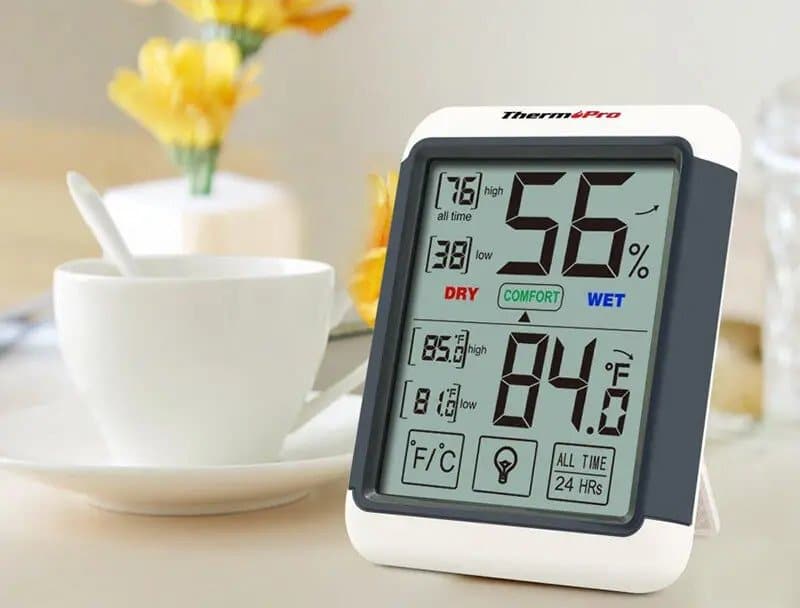The customer service team is always listening, taking notes, and quantifying complaints to ensure our products are continually improved. Due to selling directly to you, the customer, via Amazon, we can use product reviews to help us improve our existing products or help further development of new products.
How to Deal with Low Humidity in Your Home This Fall
With the passing of the summer season, fall ushers in numerous changes for homeowners. As we empty our backyard of outdoor sports equipment and BBQ grills, we’ll also need to think about the oncoming heating season. As such, it’s important to take this time to prepare your home against low humidity.
Do you know how to prepare your home? Are you aware of the dangers posed by dry air? Follow this straightforward guide to learn what you need to do to safeguard your family.
Table of Contents
Why does humidity drop in the fall?
Fall is a time of year when you can count on humidity levels to regularly drop. With nights getting colder, many homes will turn to space heaters and portable heaters to keep warm. Not only that, the brisk air will cause fewer windows to be opened, thereby leading to less outside air getting in. And with people spending more time indoors, they will have less exposure to natural humidity.
You’ll be sure to experience occasional seasonal precipitation, but with the hazy days of summer behind us, you can expect to deal with dry air in your home.
What kind of problems can dry air cause in my home?
Especially when left unchecked, dry air can lead to many problems for your home and family:- Personal Health: Dry air may complicate health issues such as asthma and influenza. And because dry air allows allergens like mold spores and dust mites to circulate better in your home, dry air can also trigger allergy attacks.
- Home Construction Materials: Dry air can have a destructive influence on building materials like wood, thereby putting your wooden floors and furnishings at risk.
- Personal Possessions: Dry air in your home can also adversely affect personal items such as musical instruments and books.

What are the benefits of a properly humidified home?
- Hydrated Skin: Say goodbye to dry skin this heating season with a home with adjusted humidity levels.
- Prevent Illnesses: Alleviate symptoms such as sore throat, headache, and dry eyes and even safeguard your family against the transmission of viral illnesses like COVID-19.
- Better Control of Dust: Enjoy a cleaner house with reduced dust, allergens, and other pollutants.
- House and Property Preservation: Protect your valuable investments against warping and cracking.
- Prevent Electrostatic Shocks: Decrease the likelihood of getting shocked by getting rid of dry air in your home.
What does relative humidity mean?
Relative humidity is a way to describe how much water there is in the air. Specifically, relative humidity is the amount of water vapor in the air compared to the maximum possible amount of water vapor. Relative humidity is usually measured as a percentage and marked short as “RH”.
According to the Environmental Protection Agency (EPA), the ideal indoor relative humidity is somewhere between 30 and 50% RH. Below 30% RH is simply too dry, while over 50% RH is too muggy. You can adjust your home’s humidity to whichever level you feel is the most comfortable. But, it’s important to note that a relative humidity over 60% can cause damage to your home.

How to check your home’s indoor humidity
The best way to check indoor humidity is by using a hygrometer, a device that measures humidity in the air according to relative humidity. This calibrated device is very precise and works constantly, providing updates to any change that occurs in your home environment.
If you find that the air in your home is dry, a hygrometer can be used to verify your suspicions. Once you determine your home’s humidity levels to be low, you can then take appropriate action to rectify the situation, such as activating a humidifier or taking a long, hot shower.
Final Thoughts
Fall is a busy time that marks the beginning of the hectic holiday season. All the same, it is important that homeowners guard their homes against low dry air to create a safe and comfortable living environment for their families. Want more tips on regulating humidity in your home? Try these blogs:- 7 Helpful Tips in Regulating Home Humidity During Winter
- How to Reduce Summer Humidity in Your Home
- How to Control Indoor Temperature and Humidity at Home







